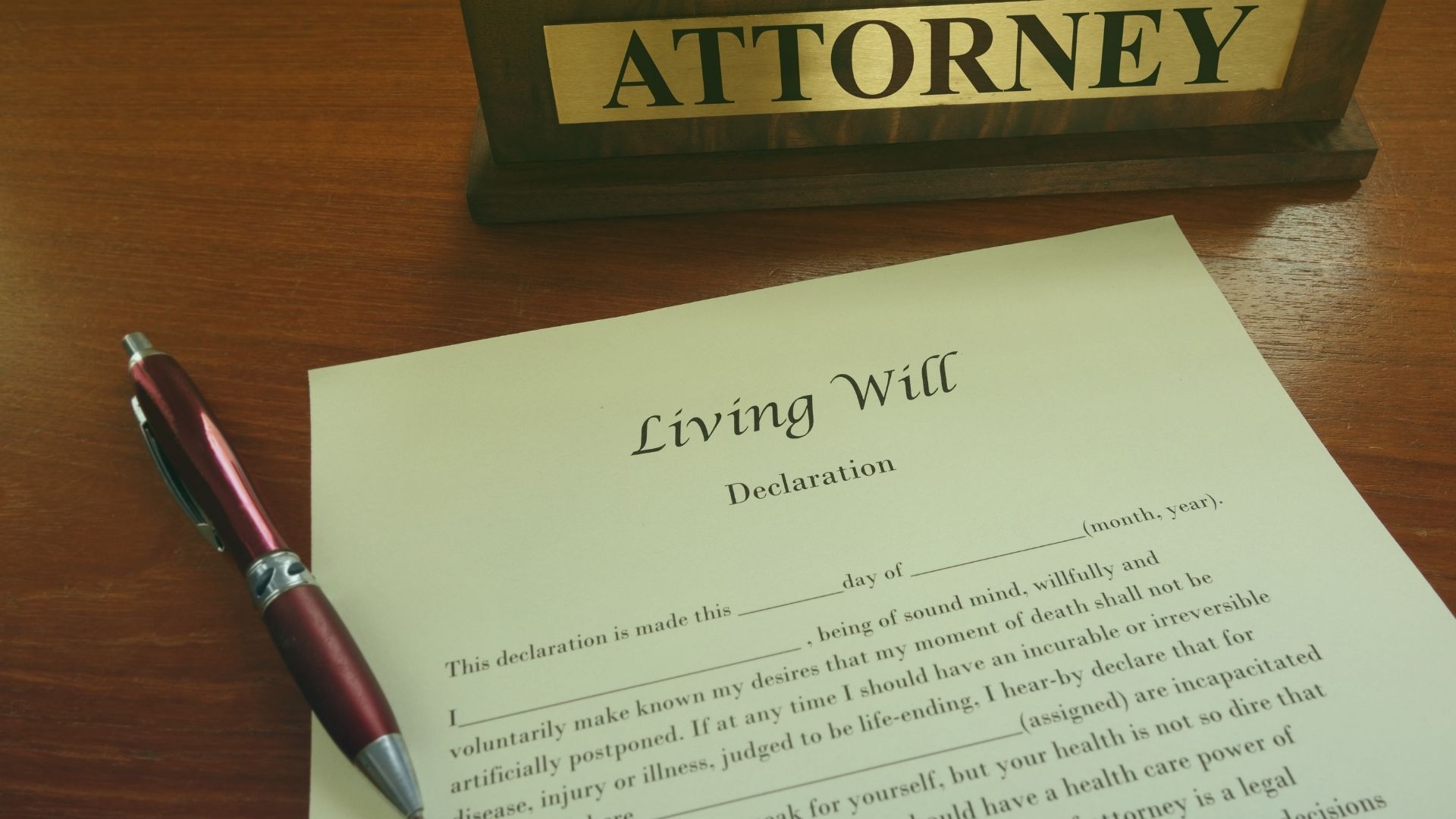Don't Leave Charity Selection in Your Will to Chance
Don't Leave Charity Selection in Your Will to Chance

Planning your Will is one of the most important financial decisions you'll ever make. Yet many people treat one crucial aspect with surprising casualness: choosing which charities to include. If you're considering leaving a bequest to charity, the organization you select deserves the same careful consideration as any other major financial decision.
Making this choice hastily or delegating it to someone else can lead to unintended consequences that undermine your charitable goals. Here's why careful planning matters and how you can make informed decisions about charitable giving in your Will.
The Hidden Risks of Last-Minute Charity Selection
Your Values May Not Be Represented
When you leave charity selection to the final moments of Will planning, you risk choosing organizations that don't truly align with your values. A charity's name or mission statement might sound appealing, but without proper research, you could discover too late that their practices don't match your expectations.
Consider this scenario: You quickly select a well-known environmental charity because you care about climate change. Later, you might learn they spend 60% of donations on administrative costs rather than direct environmental action. Had you researched beforehand, you might have chosen a more efficient organization that better reflects your values.
Administrative Complications
Last-minute charity additions to Wills often create administrative headaches for your executors. Hastily chosen organizations might have unclear legal names, making it difficult to locate them after your death. Some charities merge, change names, or even dissolve over time.
Your executors could spend months trying to identify the correct recipient of your bequest, delaying the distribution of your estate and potentially reducing the final amount due to additional legal fees.
Inefficient Use of Your Legacy
Every dollar you leave to charity represents your desire to make a positive impact. When you rush this decision, you might inadvertently support less effective organizations. Research shows that charity effectiveness varies dramatically within the same cause area. The difference between a highly effective charity and an average one can mean your donation has 10 times more impact.
Why You Shouldn't Delegate This Decision
Personal Values Can't Be Transferred
Well-meaning family members or advisors might have different priorities than you do. Your daughter might prefer animal welfare causes while you're passionate about education. Your financial advisor might recommend large, established charities when you prefer supporting grassroots organizations.
Only you truly understand what causes matter most to you and why. This personal connection to your chosen causes is what makes charitable giving meaningful.
Emotional Decision-Making
People making decisions on your behalf, especially during the emotionally charged period after your death, might choose based on recent events or personal experiences rather than your long-term values. They might select a charity that helped them during a difficult time, not necessarily one that aligns with your charitable philosophy.
Limited Research Time
Executors and beneficiaries dealing with estate settlement have numerous responsibilities and limited time. They're unlikely to conduct the thorough research needed to identify the most effective charities in your areas of interest. This time pressure often leads to choosing familiar names rather than optimal organizations.
Introducing Link Charity: Your Guide to Informed Giving
Link Charity serves as a comprehensive resource for individuals planning charitable bequests. This platform helps you navigate the complex landscape of charitable organizations, ensuring your gifts create maximum impact.
The service provides detailed information about charity effectiveness, financial transparency, and impact measurement. Rather than relying on marketing materials or name recognition, you can access objective data about how organizations operate and achieve their missions.
Link Charity also offers guidance on structuring charitable bequests to minimize tax implications and maximize the benefit to your chosen causes. Their expertise helps you avoid common pitfalls that can reduce the effectiveness of your charitable giving.
How to Evaluate Charities for Your Will
Financial Transparency
Start by examining a charity's financial statements. Look for organizations that spend at least 70-80% of their budget on program expenses rather than administrative costs. However, don't automatically dismiss charities with higher overhead costs if they're achieving significant impact.
Use resources like Charity Navigator, GuideStar, or the Better Business Bureau's Wise Giving Alliance to access standardized financial information. These platforms provide easy-to-understand ratings based on financial efficiency and transparency.
Impact Measurement
Effective charities measure and report their impact clearly. Look for organizations that can articulate specific outcomes: "We provided clean water to 50,000 people" rather than vague statements like "We helped many families."
Ask potential recipient charities for their annual impact reports. Organizations confident in their effectiveness will readily share detailed information about their achievements and methodology.
Organizational Stability
Consider the charity's track record and leadership stability. Organizations with consistent leadership and steady growth patterns are more likely to continue their work effectively after receiving your bequest.
Research whether the charity has weathered previous challenges successfully. Organizations that have adapted to changing circumstances demonstrate resilience that suggests they'll be good stewards of your legacy gift.
Alignment with Your Values
Beyond effectiveness, ensure the charity's approach aligns with your values. Some organizations focus on direct service delivery, while others emphasize advocacy or research. Some work locally, others globally. Some address immediate needs, others work on long-term systemic change.
Spend time understanding not just what a charity does, but how they do it. This ensures your bequest supports an approach you believe in.
The Benefits of Planning Ahead
Time for Thorough Research
Starting your charity research early gives you time to investigate multiple organizations, compare their effectiveness, and even visit or volunteer with your top choices. This hands-on experience provides insights you can't gain from financial statements alone.
You might discover smaller, highly effective organizations that perfectly match your values but aren't well-known. Early research opens up possibilities that last-minute decisions foreclose.
Opportunities for Engagement
When you identify preferred charities well in advance, you can begin supporting them during your lifetime. This allows you to see their work firsthand and build relationships with their leadership. You'll gain confidence that your eventual bequest will be well-used.
Some donors even serve on boards or volunteer with their chosen charities, deepening their understanding and ensuring their bequest will align with the organization's future direction.
Flexibility for Changes
Charitable landscapes evolve constantly. New organizations emerge while others become less effective or change focus. Planning ahead gives you time to monitor your chosen charities and make adjustments if needed.
You might discover that a cause you care about is becoming well-funded by others, freeing you to support a more neglected area. Or you might learn about innovative approaches that didn't exist when you first drafted your Will.
Tax Planning Benefits
Early charity selection enables sophisticated tax planning strategies. You might discover opportunities for charitable remainder trusts, charitable lead trusts, or other vehicles that provide income tax benefits during your lifetime while supporting your favorite causes.
Working with financial advisors and tax professionals requires time to structure these arrangements properly. Last-minute charitable additions rarely allow for optimal tax planning.
Making Your Decision
Start with Your Passions
Begin by identifying causes that genuinely matter to you. Consider experiences that shaped your worldview, challenges you've faced, or issues you find compelling. Authentic passion for a cause increases the likelihood you'll choose effective organizations within that area.
Don't feel pressured to support certain "popular" causes if they don't resonate with you personally. Your charitable legacy should reflect your unique perspective and values.
Research Multiple Options
Within each cause area, investigate several organizations. Compare their approaches, effectiveness, and financial health. This comparison helps you identify which organizations best match your criteria.
Consider supporting a mix of organization types: perhaps one large, established charity with proven scale and one smaller organization doing innovative work. This diversification can maximize your impact while supporting different approaches to the same problem.
Consult Experts
While you shouldn't delegate the final decision, consulting experts can provide valuable insights. Link Charity and similar resources offer professional guidance without conflicts of interest that might influence recommendations.
Estate planning attorneys familiar with charitable giving can help structure your bequests for maximum effectiveness. They can also suggest language that ensures your gifts go to organizations that continue to align with your values over time.
Securing Your Charitable Legacy
Your Will represents your final opportunity to make a positive impact on the world. The charities you choose will carry forward your values and continue work you consider important long after you're gone.
This profound responsibility deserves careful attention and thorough planning. By researching potential recipients, understanding their effectiveness, and ensuring alignment with your values, you can create a charitable legacy that truly reflects who you are and what you believe in.
Don't leave something this important to chance or to others. Take control of your charitable legacy by starting your research today. Your future beneficiaries – and the causes you care about – will benefit from your careful preparation and thoughtful decision-making.
The time you invest now in charity selection will pay dividends in impact and peace of mind. Make your charitable giving as intentional as every other aspect of your estate planning.











